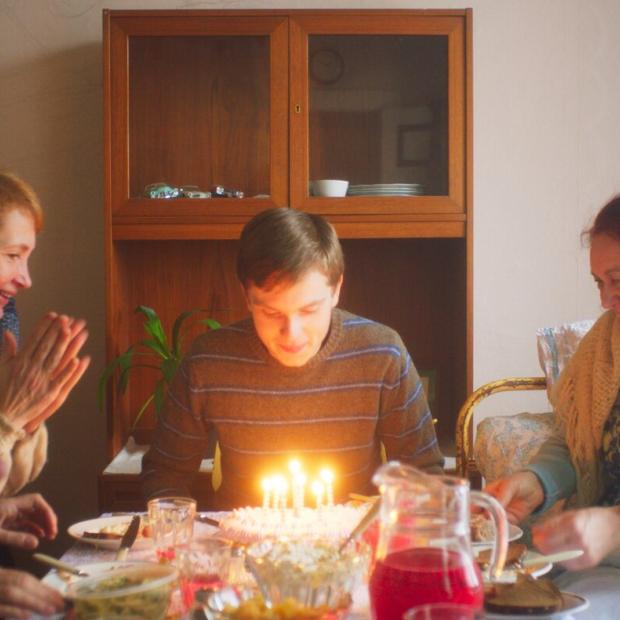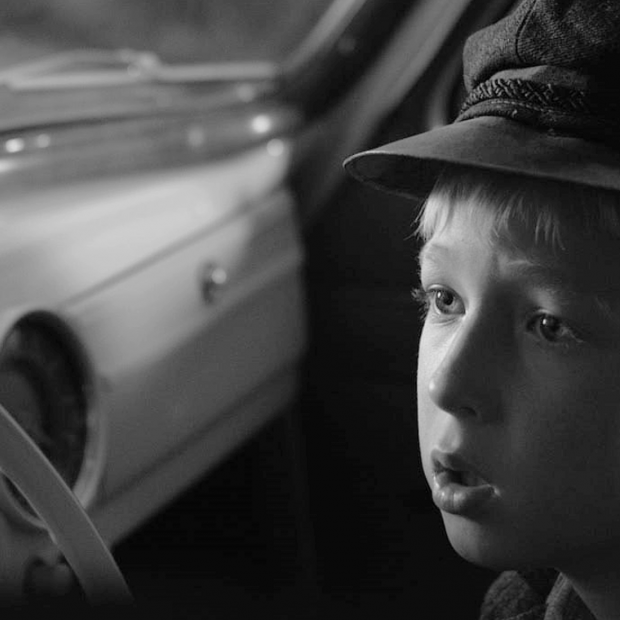The Experience of Watching 100 Movies
MA programme in Literature, Visual Culture and Film Studies offers students an opportunity to experience working at great art events of Estonia: the Tallinn HeadRead literary festival, the VI Artishok Biennial, and the Black Nights Film Festival (PÖFF). As a cinema lover and a professional in the field, MA student Juliana De Carvalho could not miss the chance to participate in the composition of the programme of PÖFF. The three months of work took her to different places in the world through the many international films she watched during the practical training experience.

Since my arrival in Estonia, people I’ve met here told me to not miss the Black Nights Film Festival because of its diversity, screenings which are followed by discussions with movie guests, and many other events offered by the festival. I accepted their advice and took the opportunity to participate in the festival, working as a photographer (as well as a viewer) in 2017. But this time, I could experience the festival in a completely different way by participating in the selection of films.
At first, our workload seemed to be heavy and tiring as each of the students was supposed to watch at least 100 films and write a short analysis of all of them. Although the festival screens short films, animations, documentaries, and feature films, our task included only the feature films and documentaries submitted by directors from different parts of the world and of different qualities.
Among the films submitted, we could encounter drama, horror, experimental, political, historical, philosophical, comedy, musical, action, and many other different genres one could ever imagine. Many films were great in terms of quality, others were a bit hard to watch until the end. Nevertheless, the options varied for all kinds of tastes, and in relation to the diversity of films, independently of taste, I can say that I have learnt more than I expected from this experience.
To watch a movie from an analytical point of view is, actually, completely different from watching them for pleasure and amusement. Selecting films might sound easy, but it is harder than it seems. Although I tried to keep a certain distance from my personal taste, we were advised not to do so, but to give our honest opinion about each of the films and not to keep our critical point of view separated from our personal reaction to films.
To analyse and select the films from a personal or professional perspective does not really change the fact that most of them provoked different feelings and touched me in various ways. During the team meetings we could not exclude from our discussion the impressions of the films. One could easily notice how these films stimulated our emotions and became the topic of our conversations at every meeting we had and continue to have.
This opportunity to work for PÖFF gave us much more than an intense aesthetic experience. It was historical, anthropological, cultural, musical, cinematographic, and many other experiences gathered in one. I have learned about historical facts central to specific cultures as well as about politics, philosophy, art, and cinematic language. I believe other students and I could witness how art can reflect societies and at the same time bring a critical view of contemporaneity through the unlimited choices, which are instistic to the language of cinema.
The practical training experience at PÖFF gave me more knowledge than I could have ever expected. It also confirmed how the cinema of festivals and the cinema of diversity brings an enriching experience that goes beyond what we are used to seeing in the mainstream channels of film distribution. This experience was extremely motivating for my future as a professional and for me as a person who loves cinema and art. To watch more than 100 films for the festival was not enough and we are all excited to go and watch a lot more when the 2018 PÖFF festival opens for the public.
Author: Juliana De Carvalho, Literature, Visual Culture and Film Studies MA student





